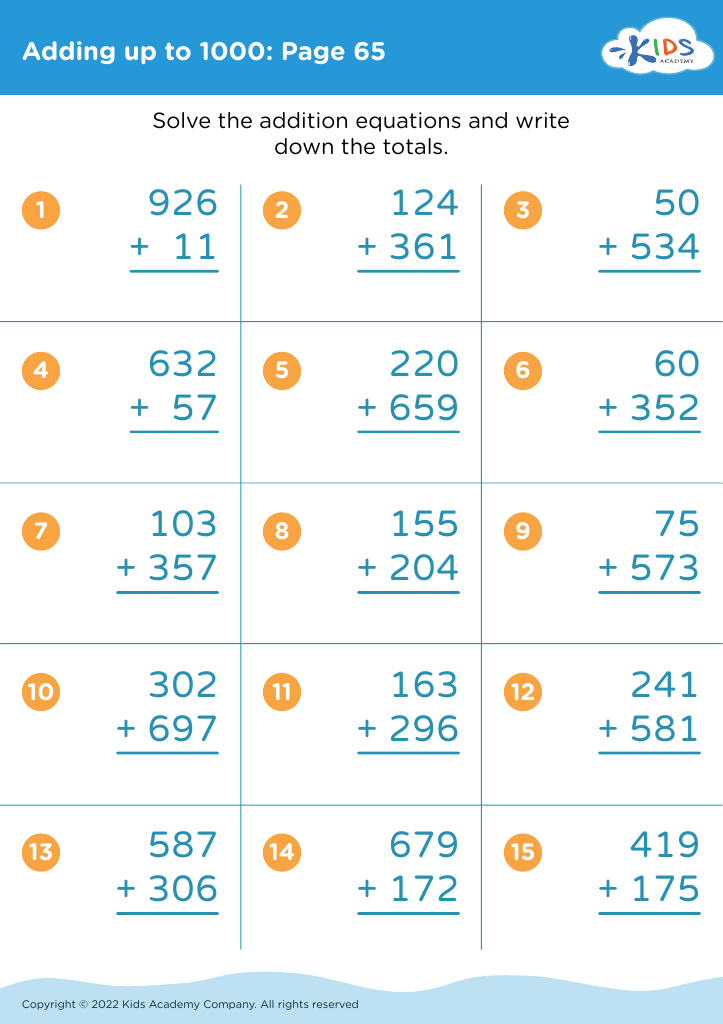Sequencing Skills Addition & Subtraction Worksheets for Ages 6-9
3 filtered results
-
From - To
Enhance your child's understanding of addition and subtraction with our Sequencing Skills Worksheets, specifically designed for ages 6-9. These engaging worksheets encourage young learners to grasp math concepts by sequencing operations in a logical order. With colorful illustrations and age-appropriate challenges, kids will practice grouping and arranging numbers, applying problem-solving skills that build a strong foundation in math. Perfect for home or classroom use, our worksheets promote active learning through fun exercises that capture children's interest. Boost your child’s confidence in math as they develop critical thinking abilities with our Sequencing Skills Addition & Subtraction Worksheets today!
Parents and teachers should prioritize sequencing skills in addition and subtraction for children aged 6-9 because these foundational skills play a crucial role in developing overall mathematical understanding. Sequencing helps children grasp the order in which operations must be performed to accurately solve problems. At this stage, youngsters face multi-step problems that demand clarity in thinking and an understanding of numerical relationships.
Moreover, mastering sequencing in addition and subtraction supports logical reasoning and critical thinking, which are essential for future academic pursuits. Children learn to break down complex problems into manageable steps, fostering independence and confidence in their problem-solving abilities. This skill not only enhances mathematical proficiency but also encourages good study habits and discipline.
Additionally, a strong foundation in sequencing skills builds a smoother transition to more complex mathematical concepts, including multiplication, division, and fractions. Early mastery of these skills can help prevent future difficulties and reinforce a positive attitude towards math.
Given the importance of these skills in early education, parents and teachers should actively engage children through games, activities, and real-world scenarios that emphasize sequencing in number operations, empowering them to become more confident and competent learners.





















